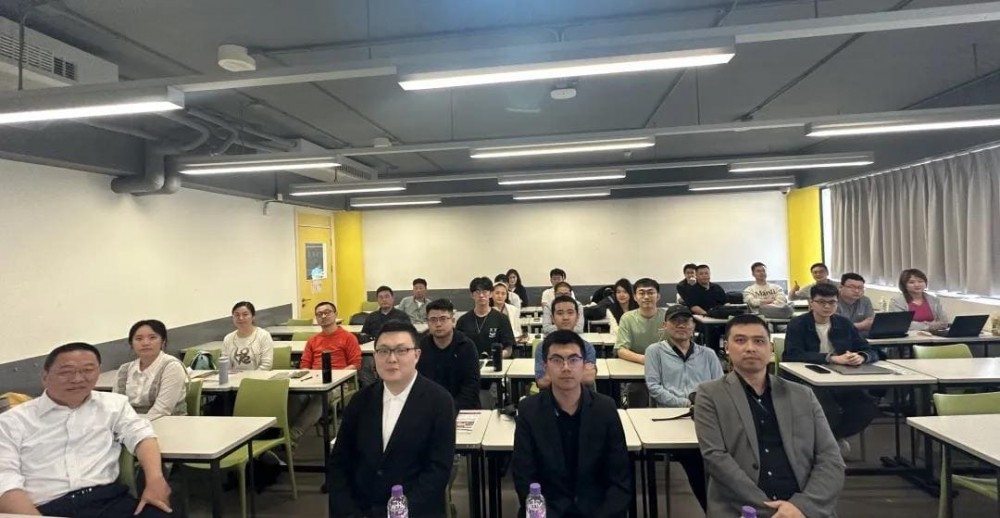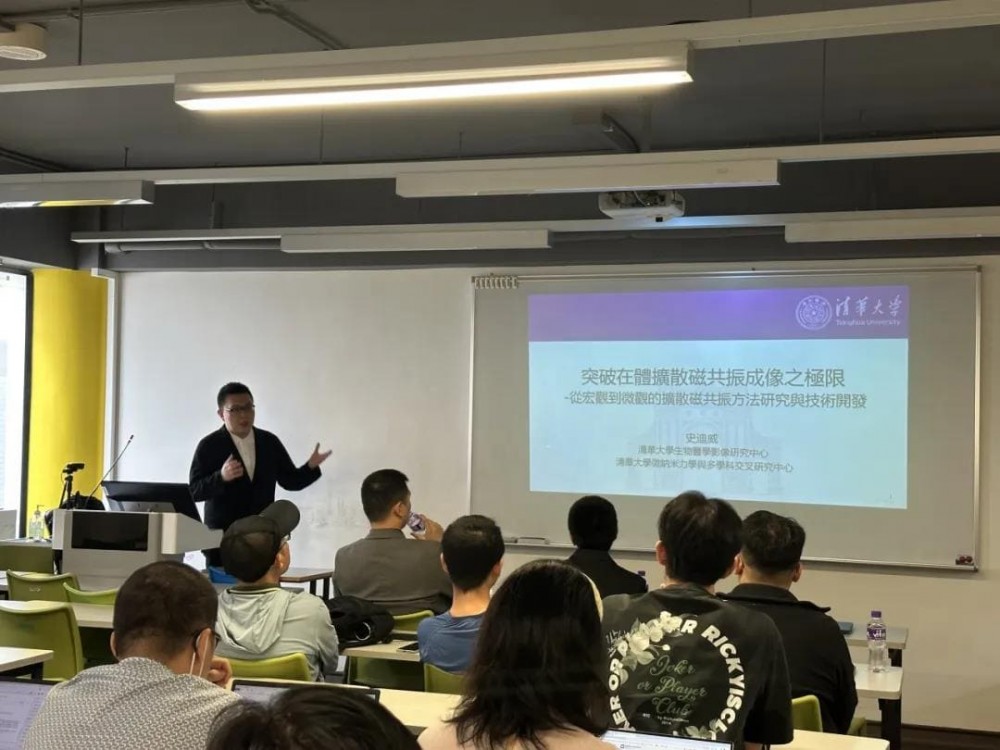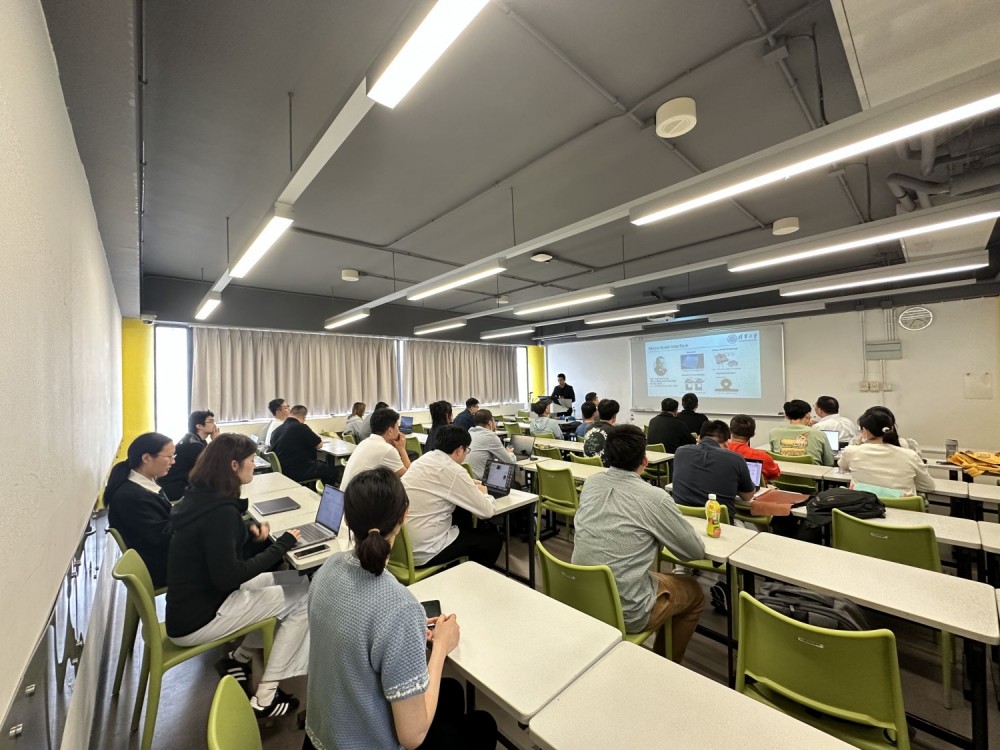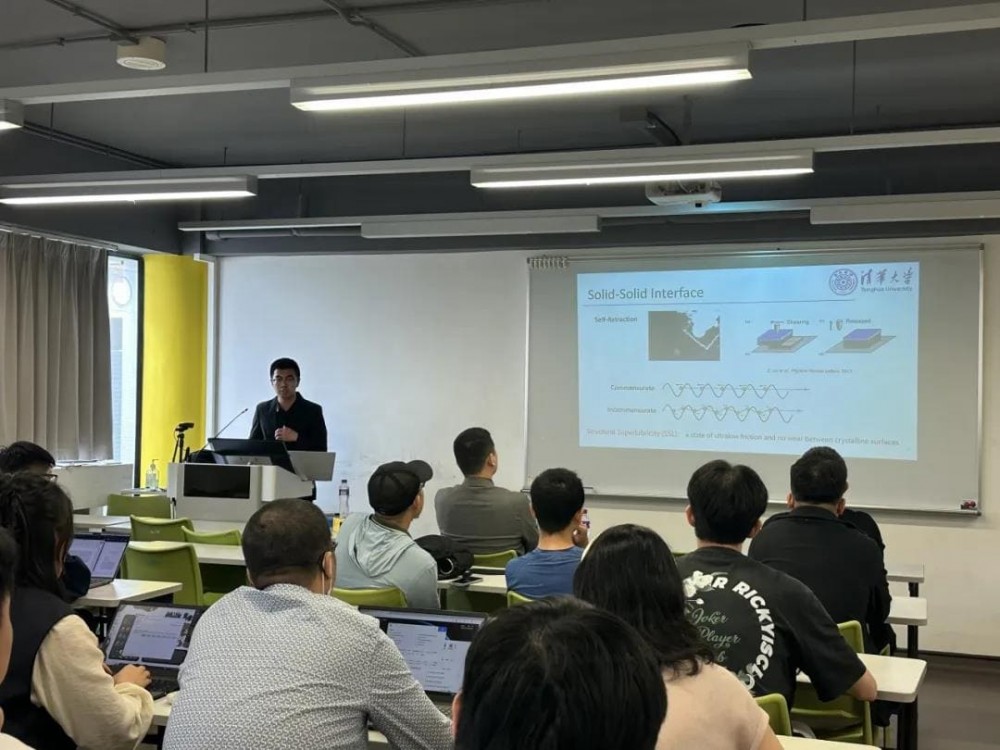In order to help students expand their research horizons, stimulate innovative thinking, improve the quality of papers, enhance academic literacy, and create an academic space for face-to-face communication and discussion, on the afternoon of March 28, 2024, the Faculty of Data Science held an academic exchange workshop in L206, inviting Diwei Shi, a postdoctoral fellow at Tsinghua University, and Li Chen, a doctoral student, came to the school to share their views on the theme of "Application of Deep Learning in Microscale Magnetic Resonance Imaging". Professor Pei Sun of the Faculty of Health and Wellness, Associate Professor Zuobin Ying of the Faculty of Data Science, Assistant Professors Xiaofeng Wu and Sanshuai Cui, as well as postgraduate students of the Faculty of Data Science participated in the event.
At the beginning of the event, Li Chen took the title of "Construction and Application of Deep Learning Algorithms in Microscale Interface Experiments" and talked about the potential of deep learning algorithms in observations of microscale interface experiments. At the same time, Chen Li introduced the application of deep learning in micro-scale interface experiments, especially the practice in "superhydrophobic interface of solid-liquid contact" and "structural super-slippery interface of solid-solid contact".
Subsequently, with the title of "Breaking through the Limits of In-vivo Diffusion Magnetic Resonance Imaging—Research and Technology Development of Diffusion Magnetic Resonance Methods from Macro to Micro", Stilwell described diffusion Magnetic Resonance Imaging as the only method currently used to measure in vivo measurements. Features demonstrated by non-invasive imaging methods of diffusion motion of water molecules. At the same time, Diwei Shi introduced some of the current research hot spots and technological frontiers in the field of diffusion magnetic resonance imaging, focusing on "whole-brain nerve fiber tract tracking" and "tumor microstructure detection".
The atmosphere at the event was lively and students asked questions enthusiastically. The two guest speakers gave detailed explanations and explanations to the students' questions through different specific applications and case studies, helping everyone to establish a more intuitive understanding of deep learning in micro-scale magnetic resonance imaging.





